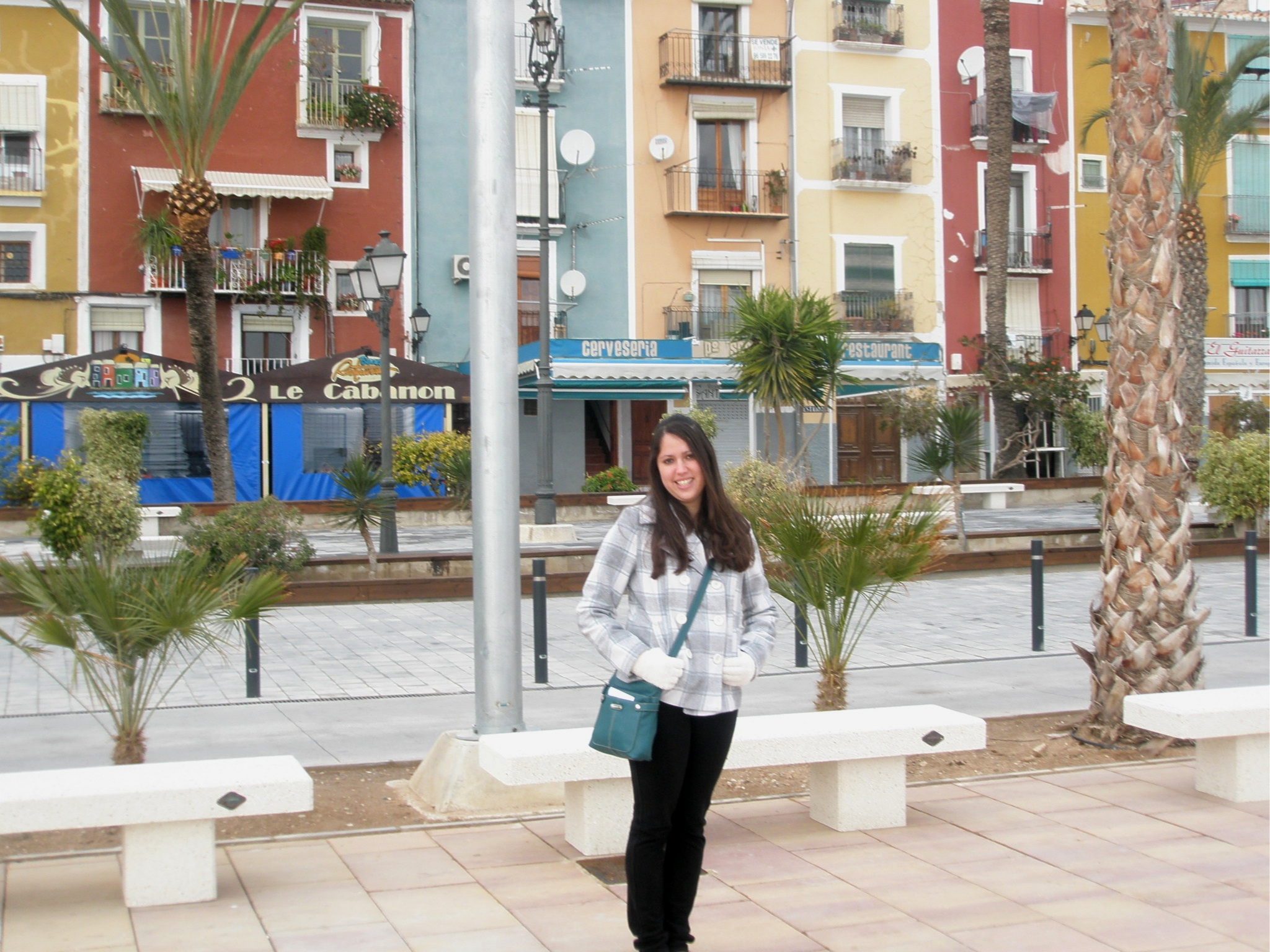
Coming to Terms with “No Pasa Nada”

Dear Jen,
We’ll admit that when we first came to Spain, we were pretty enamored with the no pasa nada attitude. As we said in our introductory article about this expression, it truly did feel like a real-world ‘Hakuna Matata’ outlook and who wouldn’t want that? This laidback “no worries for the rest of your days” lifestyle is the exact kind of thing that drew us to the Spanish culture.
However, the longer we’ve spent in Spain, the more challenging it has become to embrace this way of life at all times. If you, too, are struggling at times to accept that so many things that may matter to you are taken more lightly (or more slowly) here in Spain, this article is for you.
A brief background of “no pasa nada”
In the video below, Dani provides a more in-depth explanation of no pasa nada, what it means, different scenarios in which it can be used and what it has taught her about the Spanish culture as a whole. While nothing that is explained in the video is inaccurate or unrealistic, we do have to admit that it was presented in a way that was generally positive.
Dani mentions how she loves how much more laid-back Spaniards are than Americans and how the sheer versatility of this expression demonstrates a lot about the culture, namely that they take so many more things more lightly. In pointing this out, she insinuates that this outlook is better and that we could all learn a thing or two from the Spaniards and their no pasa nada attitude. Again, this is not untrue and this way of life HAS taught us a lot…but to only allude to the positive side does not tell the whole story.
The truth about “no pasa nada”
When you’re studying abroad or otherwise living abroad for a limited time, you often only see the good sides of the culture that you’re living in. We would argue that this is not necessarily a bad thing and it’s often the reason we end up loving it so much and coming back. However, when it comes to a limited time spent in a foreign country, this often involves only a limited experience—perhaps one in which you don’t have to subject yourself to too many challenges or frustrating situations such as dealing with any form of bureaucracy.
 It’s charming when the waiter at your sun-filled plaza “is all no pasa nada” and not rushing to take your order or bring your bill; it’s less charming when the civil servant at the foreigner’s office “is all no pasa nada” about your paperwork still not being processed after you’ve waited for three months. Spending an extra hour in the sunshine on a study abroad Saturday afternoon is a ‘sacrifice’ we’re all willing to make whereas having to take off multiple days from work in order to get a simple bureaucratic procedure completed quickly feels taxing.
It’s charming when the waiter at your sun-filled plaza “is all no pasa nada” and not rushing to take your order or bring your bill; it’s less charming when the civil servant at the foreigner’s office “is all no pasa nada” about your paperwork still not being processed after you’ve waited for three months. Spending an extra hour in the sunshine on a study abroad Saturday afternoon is a ‘sacrifice’ we’re all willing to make whereas having to take off multiple days from work in order to get a simple bureaucratic procedure completed quickly feels taxing.
We’re just gonna be honest with you—we’re usually the first ones to sing Spain’s praises, but each time we’ve needed to complete a new bureaucratic process here (i.e. visas, empadronamientos, buying a house, getting married, requesting a spouse card, etc, etc) we’ve found ourselves longing for our fast-paced and efficient home country’s way of doing things. (And trust us, when living in the U.S. we probably wouldn’t have called all of the offices there ‘efficient’ but, comparatively, they’ve really got their acts together!)
There are certain things we’ll never be “no pasa nada” about
While there is no inherent ‘right’ or ‘wrong’ to this all, we’ve personally come to the conclusion that there are certain scenarios in which we will simply never be able to see things from the laid-back no pasa nada point-of-view. And, if you haven’t noticed yet, bureaucratic processes are by far the most difficult of these scenarios for us to accept.
 Claudia is a bit calmer and always remembers (and reminds Dani) to use her cultural competences to view these situations differently and try to approach them with understanding, patience, and acceptance. Still, while we both know that she’s right and that frustration is by no means going to make the situation better, it’s not always easy. Sometimes our American upbringing simply cannot get past the lack of efficiency and initiative* that can be found so often in different governmental offices in Spain.
Claudia is a bit calmer and always remembers (and reminds Dani) to use her cultural competences to view these situations differently and try to approach them with understanding, patience, and acceptance. Still, while we both know that she’s right and that frustration is by no means going to make the situation better, it’s not always easy. Sometimes our American upbringing simply cannot get past the lack of efficiency and initiative* that can be found so often in different governmental offices in Spain.
Another scenario that can quickly become frustrating is the flakiness that you’ll find in both personal and professional relationships. We’ve lived in Spain long enough now to not get totally offended when a friend cancels plans just an hour before we’re set to meet but we find it more difficult to “be all no pasa nada” about students cancelling private lessons an hour before, landlords failing to set up much-needed handyman visits, or businesses not provided a service you’ve contracted until you call multiple times to inquire. We’ve certainly chilled out a lot since moving to Spain, but this beloved country still finds ways to test our patience on the regular.
 However, there’s always an upside
However, there’s always an upside
Our difficulty with embracing no pasa nada in all situations is not all bad. In fact, it’s sometimes comforting to be reminded of the ways in which we are American deep down into our corea. After spending the amount of time we have living in Spain, we don’t feel we’ll ever truly be American again because there are so many beautiful ways in which our outlooks have changed thanks to Spain’s culture. However, we would never want to erase who we’ve been and where we were raised because that is a huge part of our identities.
In a strange way, the sociologists in us do find it fascinating to be able to step back from our own lives and analyze how we react differently under different circumstances. It’s sometimes laughable how we can so easily adapt to the “no pasa nada way” when it’s convenient for us, yet resist it with vengeance when it’s not. And we suppose recognizing the difference allows us to decipher what it is that really matters to us.
Still, we are growing
In spite of everything else in this post, Dani was recently reminded just how much she has loosen up with her expectations and come (a bit more) to terms with no pasa nada. She had a dentist appointment in which the dentist only gave her an examination and said she would need to make a separate appointment for a cleaning.
Had she expected to have both done at once? Of course! Had she had both done during one appointment in the past? Yes, she had. However, without giving it much thought, she chose to just “be no pasa nada about it.” In fact, it wasn’t until she relayed the story to a friend that she realized she had done this!
Thinking through her reaction, Dani realized that she would have argued and been more upset back in the U.S. but she just knows that things don’t always go the way you want when living abroad. Systems and expectations are different. Spain is different. And so it took less energy for her to just make a second appointment than to worry about it.
When we originally wrote this post at the start of 2019, Dani said she would make a sincere effort to note down when and why it was that she was resisting the no pasa nada approach. While we can’t say we’ve been as conscientious about it as we would have hoped, we still see a lot of changes within ourselves and, in this case, growth towards accepting no pasa nada in more areas of our lives.
Adaptation to a new culture never ends. You will constantly be growing, learning new things, and deciding what of that new culture you accept enough to incorporate into your own behavior. We’re happy to report that after all this time, we’re still growing! And who knows, one of these days we just may fully embrace no pasa nada.
What about you? Have you adapted fully to this lifestyle? We would love to know!
 Sincerely,
Sincerely,
Spain
*As we’ve talked about a bit before in this article and this article written by a Spaniard, this lack of initiative is perhaps a side effect of the funcionario, or civil servant, system into which all government employees fall. There is simply no incentive for them to go above and beyond the exact instructions they have been given and so it’s hard to find someone who is willing to do so for you.





2 Comments
fpezzin@gmail.com
Dear Dani
I am writing these few lines because I really enjoyed reading this article "No Passa Nada" and I felt it is a lifestyle also used in Brazil.
Well, of course, there are also stressed people here, but "No Passa Nada" is very normal for us. I believe that someone who enjoys this lifestyle can have a longer life.
In fact, if we agree with what Alexandre Kalache said in his speech at TEDxUFRJ, people in their 30s and 40s today could live 30 years longer than our grandparents, and the way of living longer is to be a less stressed person and more "No Passa Nada". Well, I’m sure I’ll embrace the second.
Finally, I can close my eyes and imagine what I’m going to do on my 85-year night. I’ll be celebrating at a party with my friends, of course!
Hasta Luego!
Felipe Pezzin
Sincerely, Spain
Thanks so much for the feedback, Felipe! I definitely agree that the "no pasa nada" sort of mentality can help us live less stressful and therefore longer and healthier lives. For this reason, I would like to be able to embrace it more (and I’ve certainly got better at being "no pasa nada" than when I lived in the U.S.).
Still, I feel like our cultural upbringing becomes so much a part of us that it’s sometimes hard to escape and, especially in the examples of stressful situations I gave above, my ‘Americanness’ really shines through and overrides my ability to see things as "no pasa nada." At the same time, I am very much drawn to the Spanish and the Brazilian cultures so I bet that deep-down I want to overcome the cultural programming around this…who knows- maybe one day I will!
Thanks for reading 🙂
-Dani